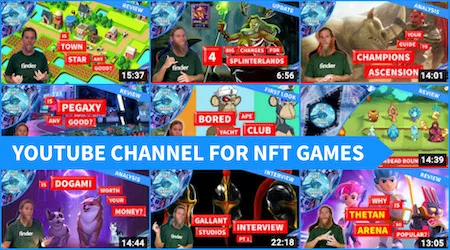
YouTube channel For NFT games
Chris Stead, Finder's game expert here. I've been covering video games since the mid-90s, and I've turned all that experience towards providing honest feedback on NFT and P2E gameplay.
Whether traditional gamers like it or not, NFTs will impact major consoles and video game franchises in the future. The question is, will your favourite developer or publisher play a role in their adoption? Perhaps they may ignore NFT games and the P2E phenomenon but still utilise blockchain technology in some way.
In a series of articles that examine where each AAA game developer, publisher and console manufacturer stands on NFTs and blockchain technology, I'm going to answer these questions and more. This article focuses on Sega, one of gaming's great creators who not only gave us Sonic the Hedgehog but also consoles like the Master System, Mega Drive and Dreamcast.
Where does Sega stand on NFTs and blockchain technology? Read on to find out. And make sure you also read our Epic Games, Square Enix, Electronic Arts, Nintendo, Ubisoft and Microsoft NFT guides.
As you will see below, I also have video content you can enjoy as well.

The name Sega doesn't hold as much weight as it used to in the gaming world, but the Japanese developer remains a powerful force. As the home of Sonic the Hedgehog, Bayonetta, Alex Kidd, Shinobi, Golden Axe, Yakuza, Crazy Taxi, Virtua Fighter, Super Monkey Ball and many other iconic franchises, Sega will always hold a place in our hearts.
Sega is also one of the few companies in gaming that has manufactured consoles. Over the course of 20 years, it has released 5 major consoles (SG-1000, Master System, Mega Drive, Saturn and Dreamcast) as well as many other notable devices, including the Game Gear. Not to mention being a star of the arcades. (You still see Daytona USA everywhere.)
After some lean years, Sega has made something of a comeback in recent times. This is largely thanks to the success of the Sonic the Hedgehog films, the Yakuza series and collaborations like Mario and Sonic at the Olympic Games. It's been enough for Sega to pledge AUD$1 billion to future endeavours, including a SuperGame metaverse initiative.
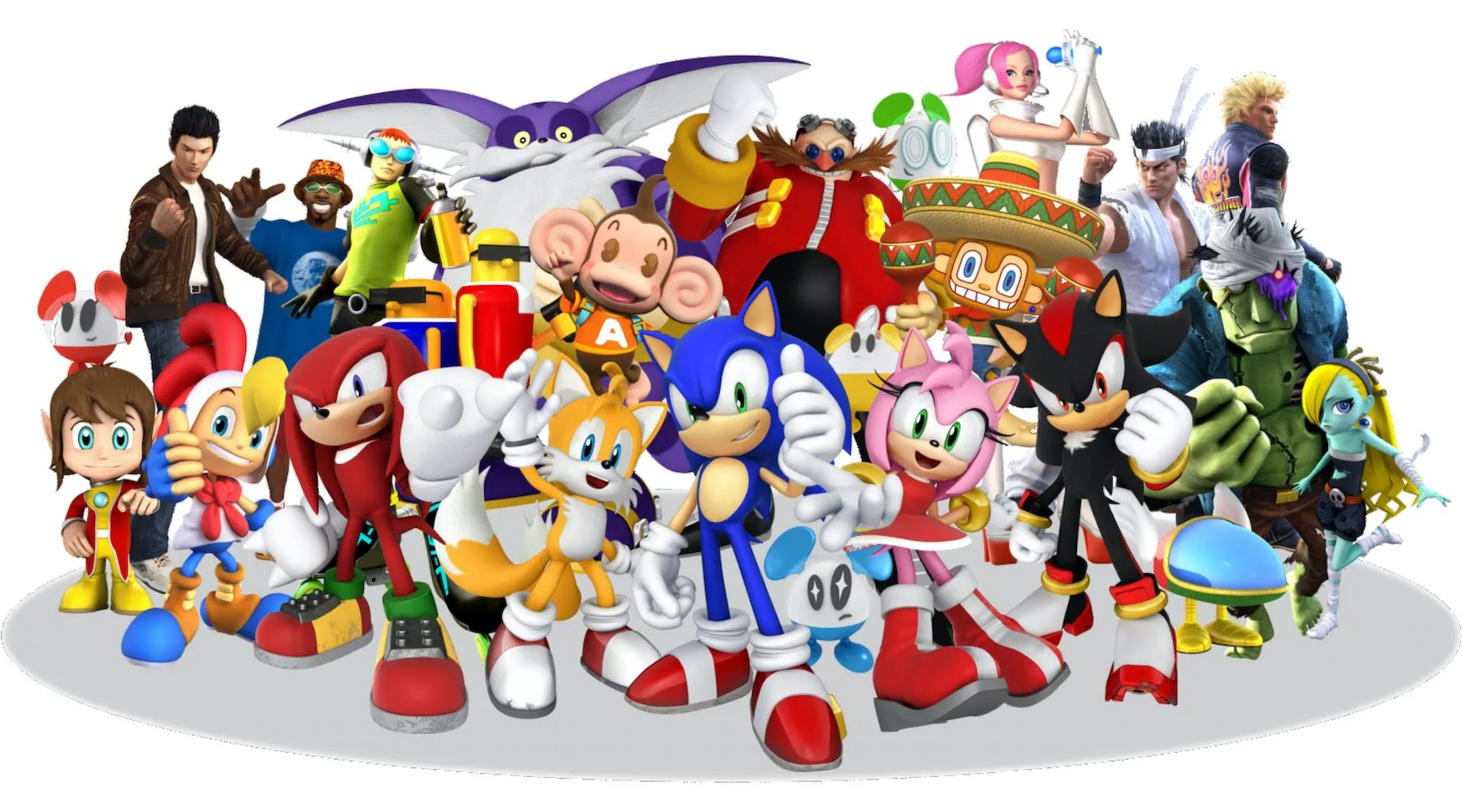
Sega's position on NFTs has been a roller-coaster ride to say the least. Back in April 2021, Sega announced it was exploring the use of NFTs and P2E game mechanics in upcoming releases. The company statement at the time was direct, indicating Sega would, "start selling NFT digital contents that utilise blockchain technology."
Back then, it was an announcement that gained little attention from traditional gamers. NFTs weren't yet on their radar.
Around the same time, Sega revealed plans to leverage fan nostalgia with its NFTs. Sega announced a partnership with double jump.tokyo to release NFTs based on their old assets, such as game art and music. Initially, the target was to have these available by Q3 2021. (Although as of June 2022, these have yet to see the light of day.)
As the popularity of NFTs grew through 2021, Sega continued to show its support. On 11 November 2021, Sega CEO Haruki Satomi said in a Q2 results briefing; "We are considering mergers and acquisitions and investments in new areas such as NFTs." Even indicating that the company would spend AUD$1 billion over the next 5 years in achieving these goals.
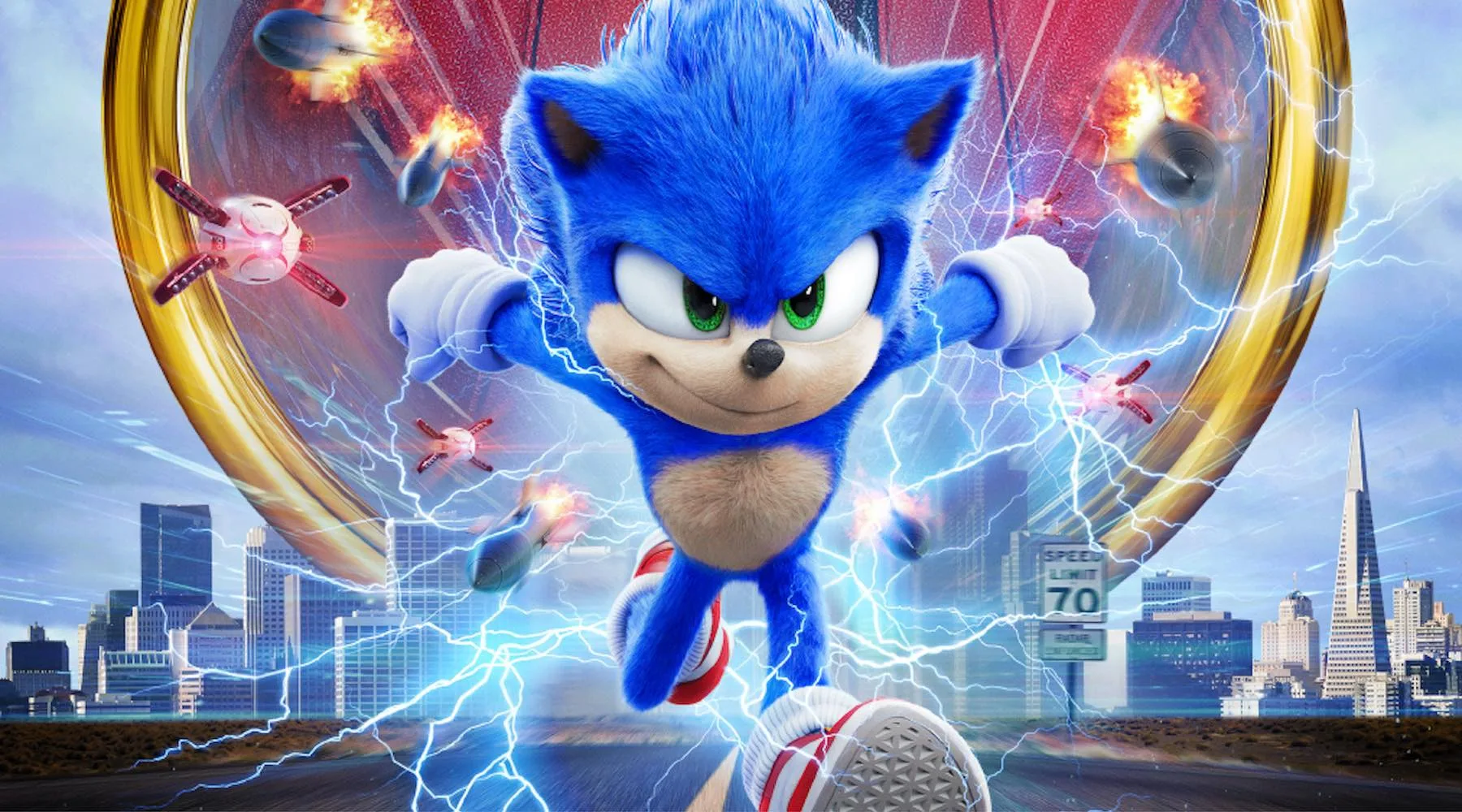
But in December 2021, gamers were becoming more vocal about their dislike for NFTs. Most notably around the Ubisoft Quartz launch. As such, in a briefing to company managers, Satomi became cagier.
"In terms of NFT, we would like to try out various experiments and we have already started many different studies and considerations, but nothing is decided at this point regarding P2E. There have been many announcements about this already, but there are users who have shown negative reactions. We need to carefully assess many things such as how we can mitigate the negative elements, how much we can introduce within Japanese regulation and what will be accepted by users. But if it is perceived as simple money-making, I would like to make a decision not to proceed."
In January 2022, a management meeting featuring CEO Haruki Satomi, CFO Koichi Fukazawa and COO Yukio Sugino took a similar message to staff.
"We need to carefully examine several things, such as how we can lessen the negative elements, how much we can bring [NFTs] under Japanese regulation, and what will be accepted and what will not by users. Then, if this challenges our purpose of 'Continuously Creating, Forever Captivating,' we will investigate it further."
"Investigate it further" is a long way from a hard no. It's not even a soft no. And sure enough, in that same month, the developer went ahead and trademarked 2 logos: Sega NFT and Sega NFT Classics Collection. Many journalists speculated the latter would go as far as to create a retro games marketplace where fans could own, lend and sell classic Sega games between themselves.
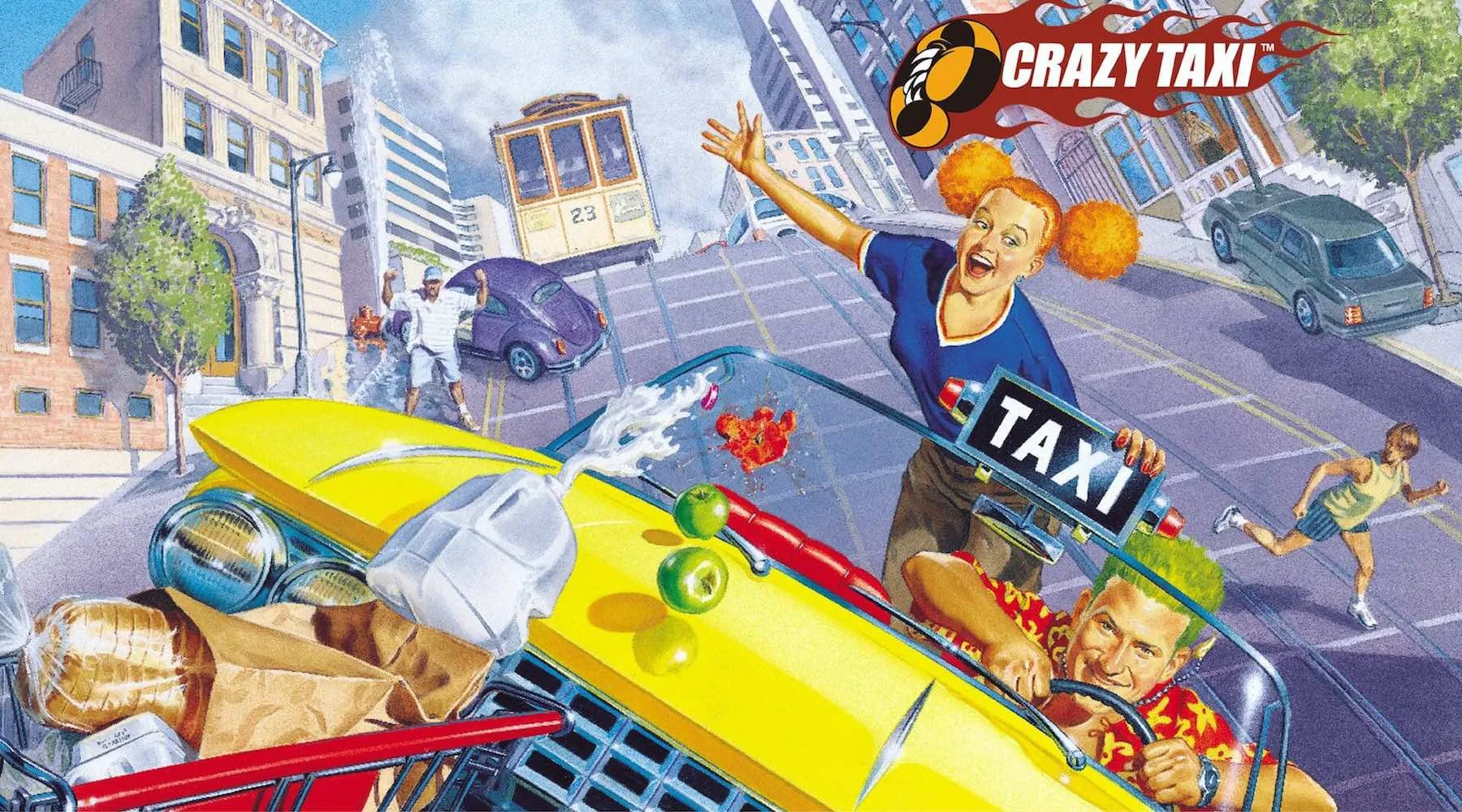
More likely, these trademarks relate to the aforementioned partnership with double jump.tokyo. I suspect the NFTs under these labels will take the form of what we've seen from Konami and Atari. These veteran studios have been minting legacy assets as NFTs and selling them to collectors to raise funds for future game development.
The head of business development at double jump.tokyo, Tomi Brooks, would weigh in on the topic come March 2022:
"For gamers, there's a split. Some think NFTs are great and understand the technology and want ownership of virtual items they put their time into. The other side is saying this is not good for the environment. But maybe they don't understand there are different types of technologies."
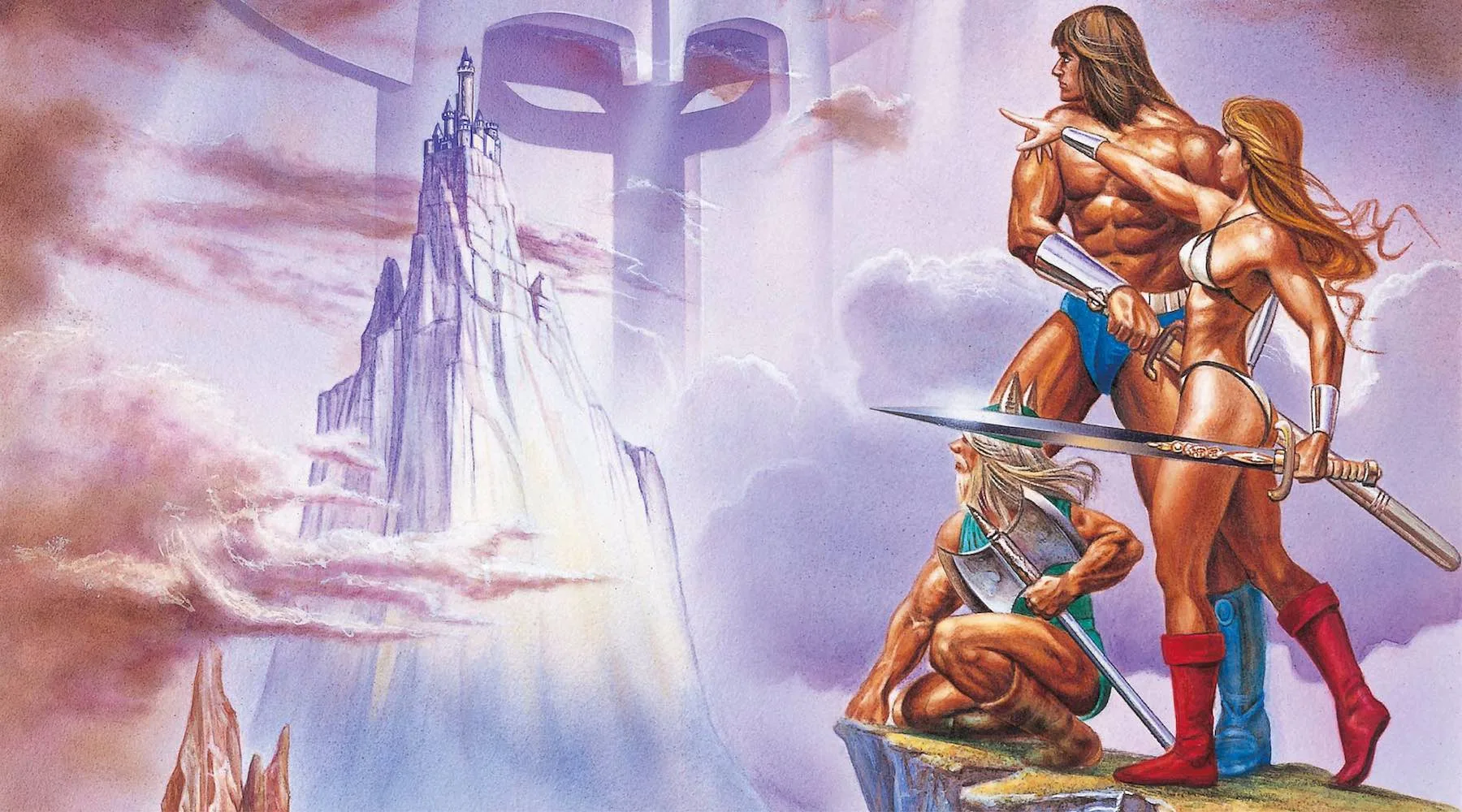
A more direct link between NFTs and future Sega titles emerged in the form of the SuperGame project. Its announcement signalled the developer's intent to come to market with a series of AAA blockbuster games from beloved franchises like Sonic, Crazy Taxi and Jet Set Radio.
During the initial reveal, Sega's phrasing was suggestive but vague. Executive VP Shuji Utsumi revealed that the SuperGame series will reach "beyond the traditional framework of games." Elsewhere signalling this was a reference to leveraging Web3, which notably leans on blockchain technology.
In April 2022, Sega was more direct about preparing fans for a future involving NFTs. Commenting on the excitement generated by Sega's bold SuperGame concept, producer Masayoshi Kikuchi said:
"Gaming has a history of expansion through the connection of various cultures and technologies. It's a natural extension for the future of gaming that it will expand to involve new areas such as cloud gaming and NFTs. We are also developing SuperGame from the perspective of how far different games can be connected to each other."
That last line is the most overt reference yet to a Sega multiverse, one that incorporates multiple IPs. Potentially in a form similar to what we've seen from Enjin and MetaKey, both of which see interoperability as being like Nintendo's amiibo. As in, the presence of an NFT unlocks something in a game, rather than appearing in the game as is.
Further evidence that a Sega metaverse is the endgame can be found in the partnership between the SuperGame project and Microsoft's Azure platform. A platform that includes the Azure Confidential Ledger blockchain.

Chris Stead, Finder's game expert here. I've been covering video games since the mid-90s, and I've turned all that experience towards providing honest feedback on NFT and P2E gameplay.
Sega's interest in blockchain technology is clear to see. However, using blockchain technology as part of a game's development doesn't necessarily indicate NFTs. And the constant mixed messaging, especially through the start of 2022, suggests Sega is still trying to work out how it can make the most of this emerging technology without letting down decades of fan trust.
I suspect this could mean that NFT collections of Sega assets could launch as completely separate, non-gameplay initiatives. And that its upcoming AAA titles will exist in the SuperGame metaverse without an NFT or crypto ecosystem. At least in the short term.
To be continued…
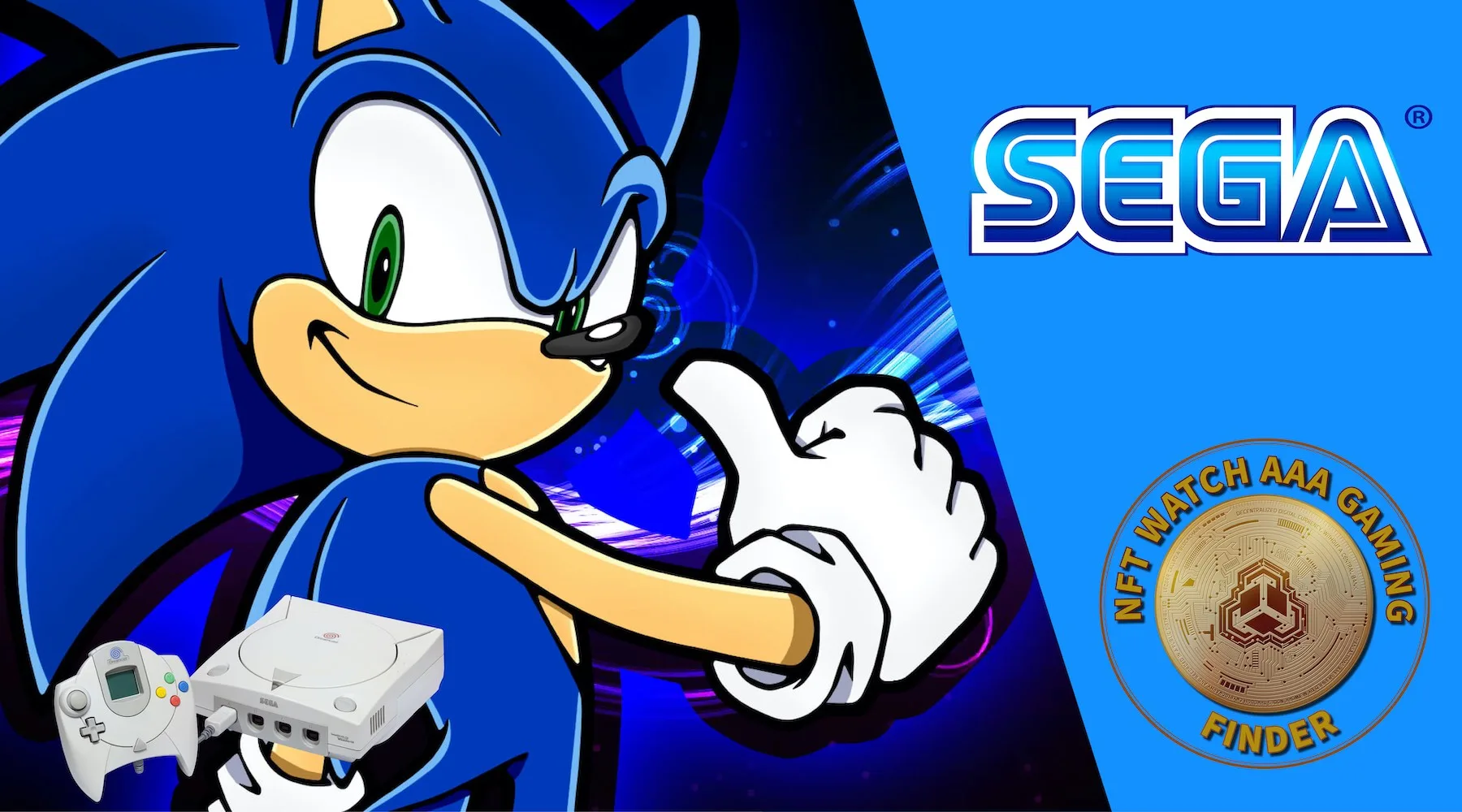
Need to put an NFT on another blockchain? Here’s how.
Learn how you can bank in on the metaverse hype or carve out a career in this expansive virtual space.
How to sell NFTs in 4 steps.
Step-by-step guide on minting an NFT.
Learn about different types of metaverses and what you’ll need to join one.
What we know so far about the upcoming NFT-based blockchain game, Champions Ascension
Learn how to play with one of the largest cryptocurrency metaverses in the world.
The definitive ranking of the NFT adoption across 26 countries.
Read our step-by-step guide to buying NFTs, including what you need to get started and which marketplaces you can use in Australia.
Creating an NFT is easier than you might think. Here are 5 steps to make an NFT, and other details you should know.